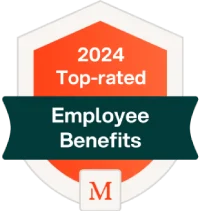March 2021 Compliance Recap

March 2021 Compliance Recap
The employee benefits guidance issued in March 2021 was largely focused on providing relief to individuals and businesses impacted by the continuing COVID-19 pandemic. Significantly, on March 11, 2021, the American Rescue Plan Act of 2021 (the Act) was enacted into law which, in part, mandates that eligible individuals receive a six-month 100% COBRA.
The following summarizes other important regulatory developments during March 2021.
ACIP Recommends the Janssen (Johnson & Johnson) Vaccine
On February 28, 2021, the Advisory Committee on Immunization Practices (ACIP) issued an interim recommendation for use of the Johnson & Johnson vaccine in persons aged 18 or older for the prevention of COVID-19, which must be covered as preventive care no later than March 19, 2021. Under the CARES Act, non-grandfathered individual and employer-sponsored group health plans are required to cover the entire cost of preventative services by not imposing cost-sharing in the form of deductibles, copays, coinsurance or other amounts on an item, service, or immunization that is intended to prevent or mitigate the coronavirus disease and is an evidence-based item or service that has a rating of “A” or “B” in the current recommendations of the United States Preventive Services Task Force (USPSTF); and an immunization that is intended to prevent or mitigate the coronavirus disease that has a recommendation from ACIP with respect to the individual involved. Read more about this mandatory coverage requirement.
IRS Releases 2020 Form 8889, Instructions for Form 8889, and Publication 969
The IRS released the 2020 versions of Form 8889 and its instructions. Form 8889 is filed with Form 1040, Form 1040-SR, or Form 1040-NR to report events such as HSA contributions, HSA distributions, or acquiring interest in an HSA because of the death of the account beneficiary. The IRS also released Publication 969 Health Savings Accounts and Other Tax-Favored Health Plans for 2020. Publication 969 provides information about account-based plan requirements such as eligibility requirements, contribution limits, and qualified medical expenses.
OCR Extends the Deadline for Public Comments on Proposed Modifications to the HIPAA Privacy Rule
The Office for Civil Rights (OCR) under the Department of Health and Human Services (HHS) (collectively, the Department) issued a proposed rule modifying the Privacy Rule under the Health Insurance Portability and Accountability Act (HIPAA) to support HHS’ Regulatory Sprint to Coordinated Care initiative. The Privacy Rule is one of several rules that are collectively known as the HIPAA Rules that protect the privacy and security of individuals’ medical records and other protected health information (PHI). The Department proposes to modify the Privacy Rule to increase permissible disclosures of PHI and to improve care coordination and case management. If finalized, this rule would take effect 60 days after any final rule is published in the Federal Register. Covered entities and their business associates would have until the “compliance date” (180 days from the effective date of any finalized changes under the rule) to establish and implement policies and practices to achieve compliance with any new or modified standards in accordance with this rule.
Public comments on the proposed rule were originally due on March 22, 2021; however, OCR extended the deadline to May 6, 2021.
Read more about the proposed rule in our Compliance Brief: “Proposed Rule Amending the HIPAA Privacy Rule” and our Advisor: “Proposed Rule Amending the HIPAA Privacy Rule.”
DOL Non-enforcement Position on ERISA Plan Investments Proxy Voting
The DOL released a policy statement that it will not enforce the recently published final rules on Financial Factors in Selecting Plan Investments and Fiduciary Duties Regarding Proxy Voting and Shareholder Rights. The DOL provided that, until the publication of further guidance, it will not pursue enforcement actions against any plan fiduciary based on a failure to comply with these final rules with respect to an investment or an exercise of shareholder rights.
For a brief overview of these rules see the November 2020 Compliance Recap and December 2020 Compliance Recap.
Question of the Month
Q: Do the American Rescue Plan Act of 2021 (ARPA) COBRA subsidy requirements apply to state required continuation of coverage?
A: Yes, a state program that provides comparable continuation coverage is subject to the ARPA COBRA subsidy requirements if the state continuation coverage is due to involuntary termination of employment or reduction of hours, the subsidy will apply from April 1, 2021, to September 30, 2021. However, states may need to enact new laws in order to make the subsidy available under their current statutory scheme. We await receipt of additional guidance from regulatory agencies regarding the COBRA subsidy.
Categories
Archive









